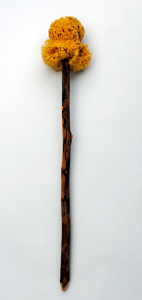
Seneca the Younger (c.4 BC-65mAD) was a political figure, playwright and philosopher in the early years of the Roman Empire. He was born Lucius Annaeus Seneca in Spain, the son of a prominent historian and orator. Seneca returned to Rome as an infant and spent several years studying and battling ill health. He followed his father into politics, obtaining a magistracy in his early 30s.
Seneca found public life frustrating but his Stoicism helped him tolerate the problems of imperial politics. Many considered Seneca dangerous because of his significant intellect. He became embroiled in imperial intrigues and spent several years in exile.
In 49 AD, Seneca was recalled to Rome to tutor the teenaged Nero. When Nero became emperor in 54 AD Seneca was retained as his political advisor. Working with the unstable and increasingly tyrannical Nero took its toll on Seneca’s health, as well as his reputation. In 62 AD he retired to his country estate, with Nero’s blessing, and returned to writing.
Seneca accepted this fate without challenge or complaint. He had written about suicide not long before, hailing its positives and outlining situations when taking your own life was an acceptable course of action. According to Seneca, suicide was morally justifiable if you were impoverished, crippled, terminally ill or insane. Living in the relentless grip of a tyrant was another justification, allowing one to “burst the bonds of human servitude”.
In his Epistles, Seneca gives a working example of such a case, a Germanic slave who took his own life after years of mistreatment. While alone in the lavatory, the slave suicided by shoving a xylospongium (a sponge on a stick, used to wipe down toilet seats and possibly soiled backsides) down his own throat:
“In a training academy for gladiators who work with wild beasts, a German slave, while preparing for the morning exhibition, withdrew in order to relieve himself – the only thing he was allowed to do in secret and without the presence of a guard. While so engaged, he seized the stick of wood tipped with a sponge, devoted to the vilest uses, and stuffed it down his throat. Thus he blocked up his windpipe and choked the breath from his body… What a brave fellow. He surely deserved to be allowed to choose his fate.”
Seneca took his own life by slashing his wrists in several places. Though intended to be quick, his death was slow and lingering. Many historians consider Seneca’s suicide to be the Roman equivalent of the death of Socrates.
Source: Seneca the Younger, Epistulae morales ad Lucilium, No. 70, c.64 AD. Content on this page is © Alpha History 2019-23. Content may not be republished without our express permission. For more information please refer to our Terms of Use or contact Alpha History.
